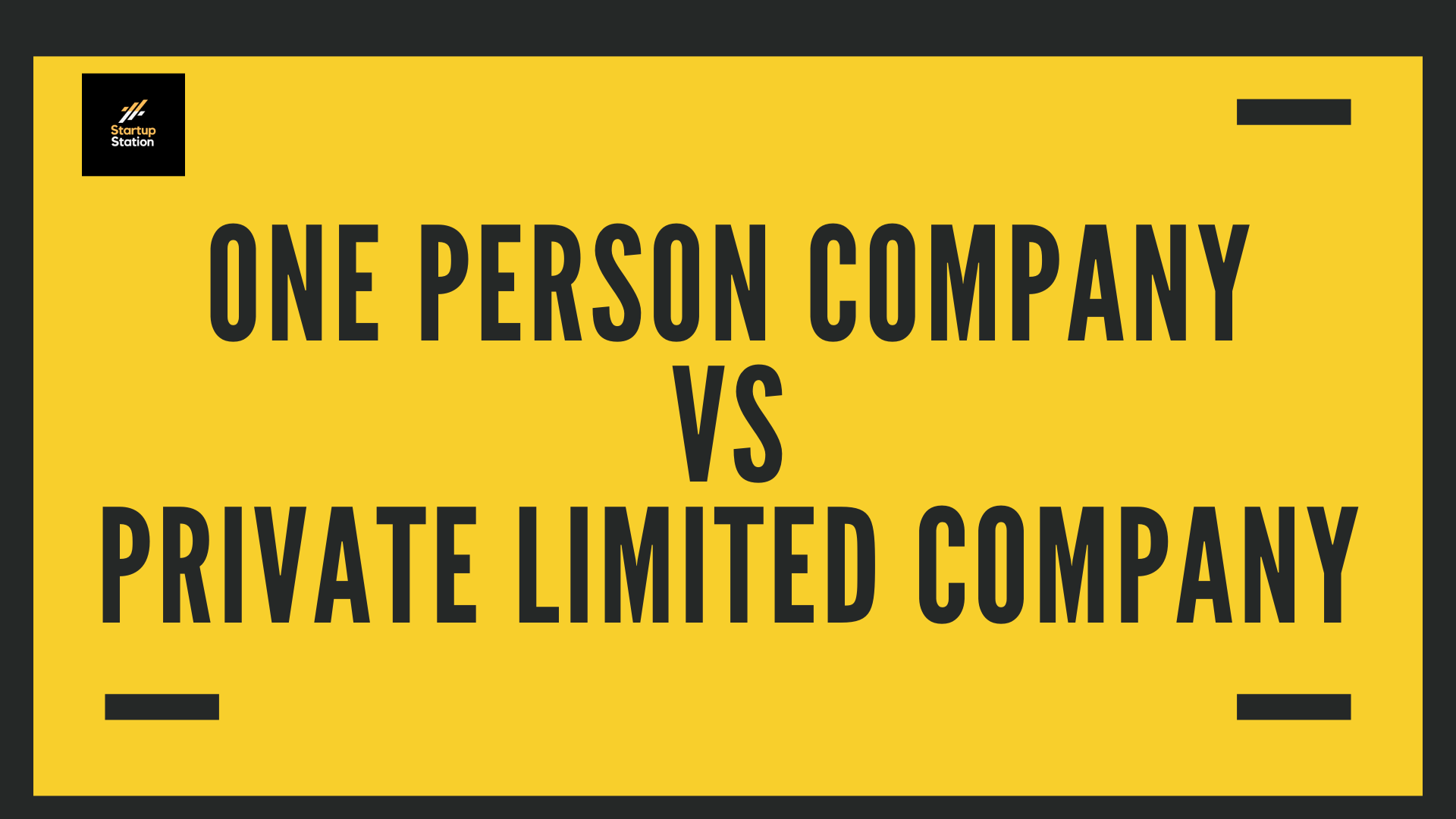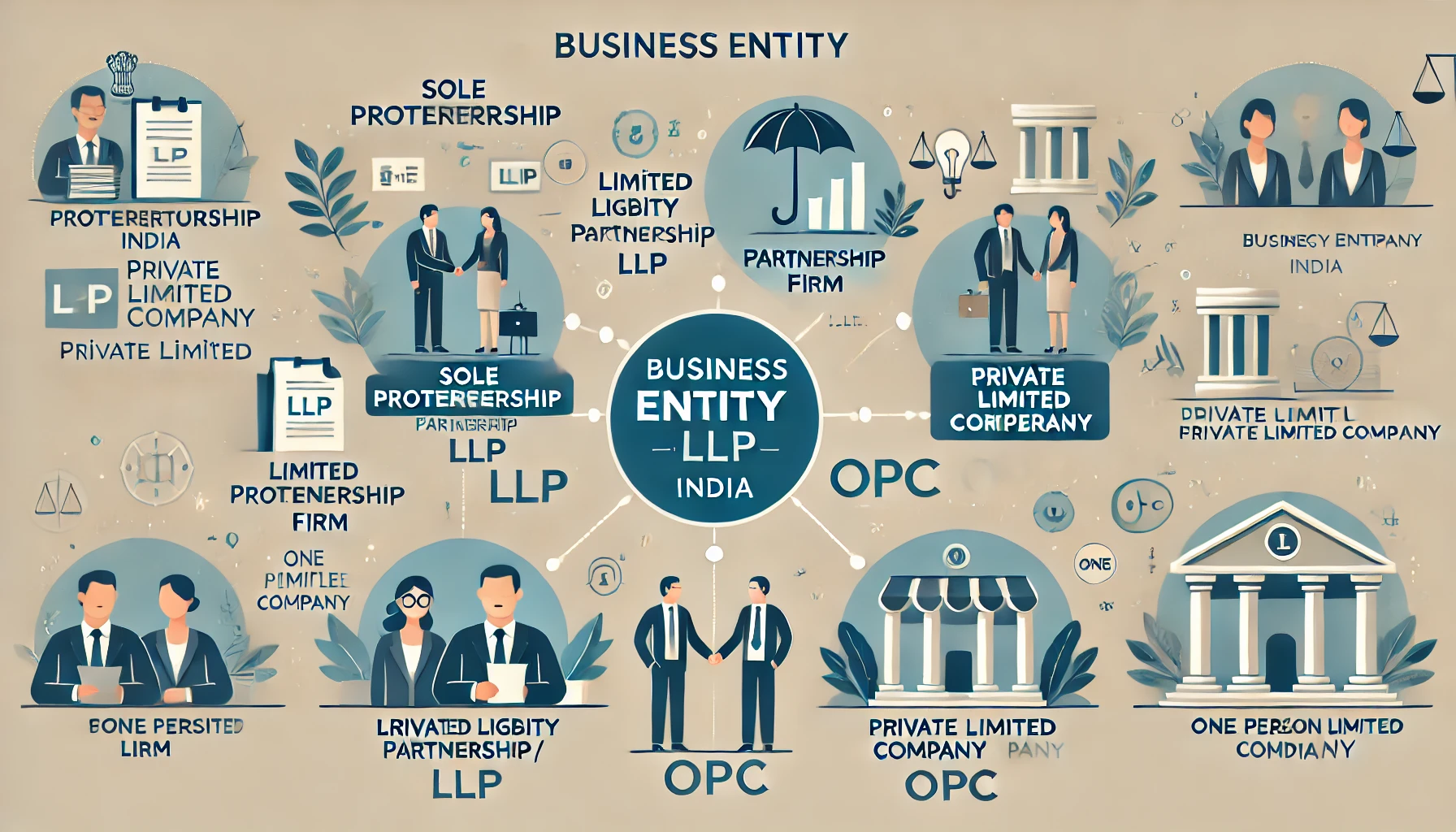In the world of business, entrepreneurs often face the crucial decision of choosing the right business structure that aligns with their goals, aspirations, and operational requirements. Two popular choices among business owners are the One Person Company (OPC) and the Private Limited Company (PLC). While both offer distinct advantages and disadvantages, understanding their differences is essential for making an informed decision. Let's delve into a comprehensive comparison between these two business entities.
1. Introduction
Before diving into the intricacies, it's essential to grasp the fundamental concepts of OPCs and PLCs. An OPC is a type of company structure introduced to support entrepreneurs who wish to start a venture with limited liability but do not have partners. On the other hand, a PLC is a privately held business entity where the ownership is divided among a group of shareholders.
2. Formation Process
Setting up an OPC:
The formation process of an OPC involves several steps, including obtaining Digital Signature Certificates (DSCs), Director Identification Numbers (DINs), and registering the company with the Ministry of Corporate Affairs (MCA).
Establishing a PLC:
Establishing a PLC is a more elaborate process, requiring the drafting of Memorandum and Articles of Association, obtaining approval from the Registrar of Companies (ROC), and adhering to various statutory compliances.
3. Legal Structure and Compliance Requirements
Legal framework for OPCs:
OPCs are governed by the provisions of the Companies Act, 2013, with specific regulations tailored to accommodate single-person ownership.
Legal framework for PLCs:
PLCs operate under the same legal framework as other private limited companies, with stringent compliance requirements mandated by the Companies Act.
4. Minimum Requirements
One Person Companies (OPCs) provide entrepreneurs with the flexibility to commence their ventures without being bound by any obligatory minimum capital prerequisites, enabling them to initiate operations with minimal financial investment.
Minimum number of directors and shareholders for PLCs:
PLCs must have at least two directors and shareholders, ensuring shared responsibility and decision-making.
5. Limited Liability
Both OPCs and PLCs provide limited liability protection, shielding the personal assets of the owners from business liabilities and debts.
6. Taxation
Tax implications for OPCs:
OPCs are taxed at the corporate tax rate, with certain exemptions available for startups and small businesses.
Tax implications for PLCs:
PLCs are subject to corporate taxation, with dividends distributed to shareholders taxed at individual income tax rates.
7. Transferability of Shares
Ease of transferring shares in OPCs:
OPCs face restrictions on the transfer of shares, requiring the nominee director's consent in case of transfer.
Process of transferring shares in PLCs:
PLCs offer greater flexibility in share transferability, enabling shareholders to buy, sell, or transfer shares without significant restrictions.
8. Management and Decision-Making
Decision-making process in OPCs:
In OPCs, the sole owner holds complete control over decision-making, simplifying the decision-making process.
Management structure in PLCs:
PLCs follow a structured management hierarchy, with decisions made collectively by the board of directors and shareholders.
9. Flexibility and Growth Potential
Flexibility in operations for OPCs:
OPCs offer greater flexibility in operations, allowing the owner to adapt quickly to changing market conditions and business needs.
Growth potential and scalability for PLCs:
PLCs have higher growth potential and scalability due to access to external funding, ease of expansion, and better market visibility.
10. Compliance Burden
Compliance requirements and regulatory burden for OPCs:
OPCs have comparatively lower compliance requirements, reducing the administrative burden on the owner.
Compliance burden for PLCs:
PLCs face higher compliance burdens, including regular filing of financial statements, annual returns, and board meetings.
11. Cost Considerations
Initial setup costs for OPCs:
OPCs incur lower initial setup costs, making them an attractive option for solo entrepreneurs with limited capital.
Comparative costs for establishing and maintaining PLCs:
PLCs involve higher initial setup costs and ongoing maintenance expenses, including audit fees, legal fees, and compliance costs.
12. Public Perception and Credibility
Perception of OPCs in the market:
OPCs may face challenges in gaining credibility and market trust due to their single-person ownership structure.
Credibility associated with PLCs:
PLCs are often perceived as more credible and stable entities, enhancing investor confidence and business opportunities.
13. Suitability for Different Businesses
Types of businesses suitable for OPCs:
OPCs are ideal for small businesses, startups, and professionals seeking limited liability protection without the complexities of a traditional company structure.
Industries where PLCs are preferred:
PLCs are preferred in industries requiring significant capital investment, scalability, and long-term growth strategies.
14. Conclusion
In conclusion, the choice between an OPC and a PLC depends on various factors such as ownership structure, compliance requirements, taxation, flexibility, and growth aspirations. While OPCs offer simplicity and lower compliance burdens for solo entrepreneurs, PLCs provide scalability, access to external funding, and enhanced credibility in the market. Entrepreneurs must carefully evaluate their business goals and requirements before selecting the most suitable company structure.
15. FAQs
What is the main difference between an OPC and a PLC?
The main difference lies in the ownership structure, with OPCs being owned by a single person and PLCs having multiple shareholders.
Can an OPC convert into a PLC?
Yes, an OPC can convert into a PLC once it meets the eligibility criteria, such as reaching a certain turnover threshold or exceeding the paid-up capital limit.
Are there any restrictions on foreign ownership in OPCs and PLCs?
Both OPCs and PLCs allow 100% foreign ownership, subject to compliance with Foreign Direct Investment (FDI) regulations and other applicable laws.
Which type of company offers better protection against personal liability?
Both OPCs and PLCs offer limited liability protection, safeguarding the personal assets of the owners from business debts and liabilities.
What factors should one consider when choosing between an OPC and a PLC?
Factors such as ownership structure, compliance requirements, taxation, scalability, and long-term business goals should be carefully evaluated when making the decision.




